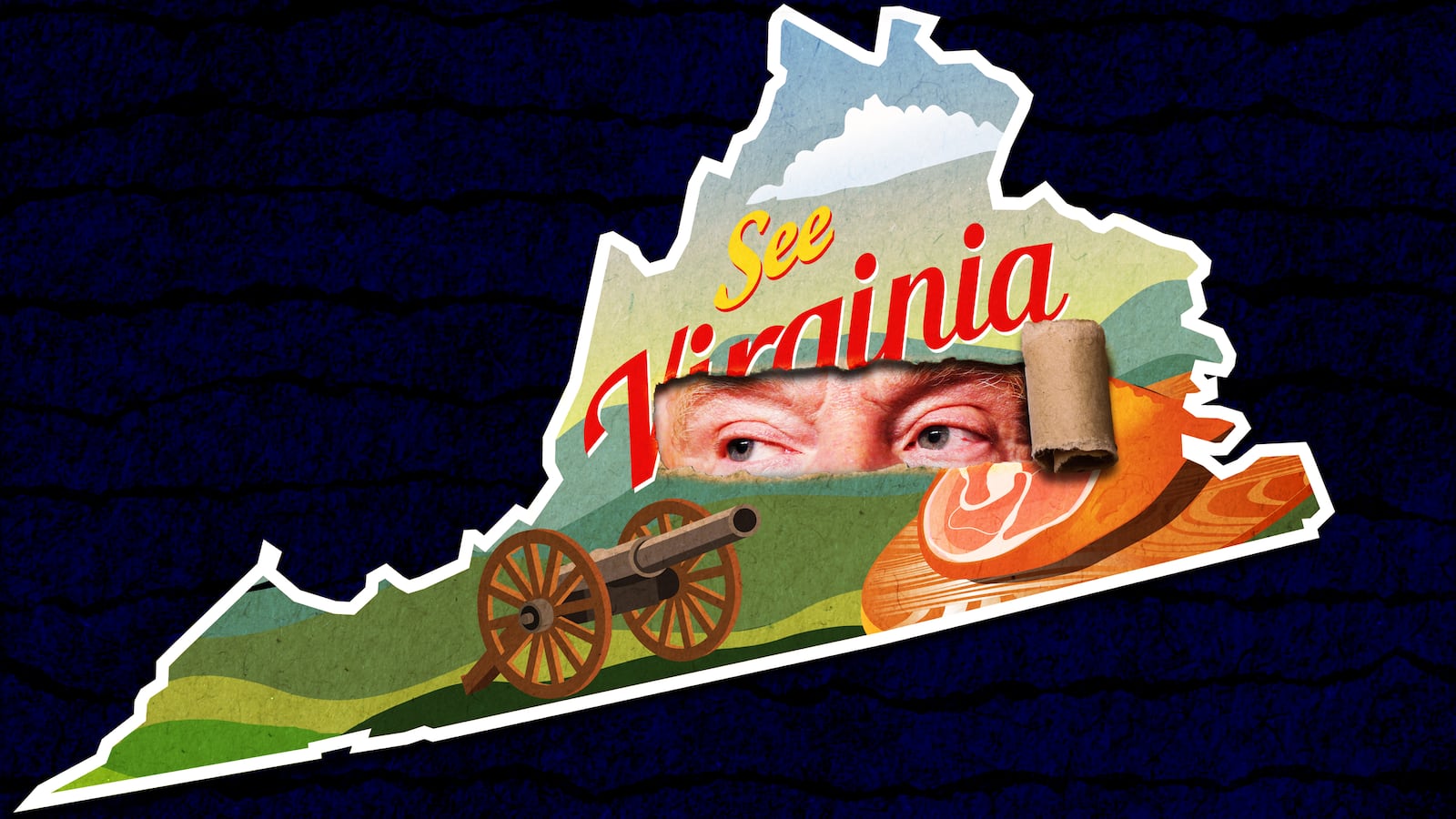His name wasn’t on the ballot in Virginia, but the ex-president is sure to claim victory in a governor’s race where his endorsed candidate, Republican Glenn Youngkin, came from significantly behind to defeat Democrat Terry McAuliffe.
Painful as it is for Democrats to admit, what happened in Virginia is a win for Donald Trump in his comeback tour, and a reminder to the powers that be in Washington that the primary instigator of the Jan. 6 insurrection is very much on the prowl for a path back to the presidency.
Youngkin demonstrated that Trumpism with a smile can swing enough suburban voters back into the Republican fold to make a statewide victory for the GOP in Virginia a reality for the first time in a decade. He did it by spending big, keeping his distance from Trump while trying to frame the race as a referendum on President Joe Biden, and, crucially, highlighting the grievances of parents frustrated by the restrictions forced by the pandemic and a belief that their kids had become political pawns in an ideological battle over racial equity initiatives launched after the horrific murder of George Floyd last year.
Critical Race Theory is not taught in Virginia public schools, but it became the catchall phrase that drove the governor’s race after McAuliffe said, “I don’t think parents should be telling schools what to teach.” The gaffe precipitated the Democrat’s slide in the polls. “Critical Race Theory has become the laundry basket that holds everything that especially suburban white parents have become frustrated about,” says Quentin Kidd, a political scientist at Christopher Newport University in Virginia.
No question, that mobilized votes on the Right, but the reason McAuliffe’s remark was so damaging is that it reached deep into the suburbs as well—transforming a race he wanted to be about Covid and Trump into one about education as a culture war issue, and whether government knows better than parents about what’s right for their children. A Monmouth University poll showed education and schools second only to jobs and the economy, up 10 points from September to October.
“Education has moved up in the agenda, and it’s pretty obvious why,” says Jack Pitney, a professor of politics at Claremont McKenna College. “Millions of parents had to deal with a radically different education, and many got the sense their kids were not getting the education they were before. The whole issue of mask mandates created confusion, and while critical race theory is only taught in grad schools and law schools, parents are concerned about how schools are teaching history. Democrats need to take account of these attitudes. They don’t necessarily have to do a 180 on their position but realize a lot of parents are concerned.”
Youngkin’s success showed Republicans a path to gaining the benefit of the former president’s support without having him as an anchor dragging down the campaign, no small accomplishment, says Stephen Farnsworth, director of the Center for Leadership and Media at Mary Washington University. “It’s not easy to navigate between suburban voters who don’t like Trump but have voted for other Republicans, and people wearing MAGA hats.”
At the same time, the issues around education that Youngkin surfaced are a “testament to the continuing power of racial politics in the South,” says Farnsworth. “By focusing on Toni Morrison’s Beloved, one of the most famous and celebrated works by an African American, and by taking on Critical Race Theory, the Youngkin campaign was able to talk about race in a way Virginians often prefer to talk about race—implicitly not explicitly.”
In the final weeks, the race came down to voters motivated by the specter of Trump versus those energized by the specter of CRT. Both were strong cards, said Farnsworth, and, with Youngkin’s win, “you can say CRT broke the tie.”
Farnsworth says that “CRT is a 21st-century version of Republicans’ Willie Horton appeal, not necessarily as explicit but no less effective.” An infamous 1988 ad for George H.W. Bush used the image of Willie Horton, a Black man serving a life sentence for murder in Masschussetts who raped a white woman and stabbed her boyfriend while he was released on a weekend furlough, to successfully paint the state’s Gov. and Democratic presidential nominee Mike Dukakis as soft on crime.
Virginia has been through a lot, Farnsworth continues, citing the recent removal of Confederate statues from Richmond’s Monument Avenue and the ongoing trial of the perpetrators of violence when neo-Nazis marched in Charlottesville four years ago. Youngkin has said very little about the statues. McAuliffe supports their removal.
Political scientist and analyst Larry Sabato grew up during the era in Virginia known as “massive resistance” and in a community, Norfolk, where the schools closed rather than adopt the Supreme Court’s 1954 decision to integrate, “so I’ve always been sensitive to this,” he told The Daily Beast. In 1973, when Mills Godwin, the only governor in Virginia’s history to win a second non-consecutive term (a feat that McAuliffe was attempting to match), Sabato recalled voters getting a warning in the mail that a major donor to Godwin’s opponent is “a liberal leftwing Jew.”
Sabato cites former Senator George Allen and his fondness for Confederate symbols as well as a local race where a key platform was “No Voting Rights for the District of Columbia”—not a front-burner issue at the time but useful to raise the specter of a then majority Black population gaining two senators.
As a native Virginian, Sabato has seen the power of race to shape our politics, which is why the creator of the “Crystal Ball” political rating system housed at the University of Virginia, on the eve of this most watched race, switched his prediction from “leaning Democrat” to “leaning Republican.”
And Virginia indeed leaned that way, decisively.
Either way, Trump must be thrilled that a year after his ignominious defeat, that one of the states he lost by double digits is back in the Republican column—and that Democrats, disappointed by their party’s failure to pass legislation and make good on their promises, stayed home or switched parties, handing a win to Trump that will reverberate for the coming year and beyond.



